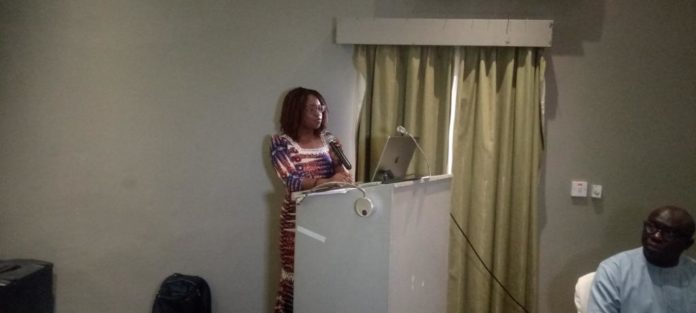By Yusufu S. Bangura
According to the AfroBarometer report that was launched on Thursday 8th December, 70% of Sierra Leoneans say they are against men using force to discipline their wives.
The official launching of the 9th edition of the Afrobarometer report took place at Radisson Blu Hotel, Aberdeen in Freetown.
“A majority of 70% Sierra Leoneans say it is never justified for men to use physical force to discipline their wives and about three in 10 think it is sometimes with 27% or always with 3% justified,” the report says.
Giving brief introduction of Afro-barometer, Project Manager for Anglophone West Africa, Daniel Armah-Attoh said Afrobarometer is a pan-African, non-partisan survey research network that provides reliable data on African experiences and evaluations of democracy, governance, and quality of life.
He said eight rounds of surveys have been completed in 39 countries since 1999, and that around 9 surveys are currently underway, adding that Afrobarometer conducts face-to-face interviews in the language of the respondent’s choice.
He further said the Afrobarometer team in Sierra Leone, led by the Institute for Governance Reform (IGR), interviewed 1,200 adults between the 13 June and 9 July 2022, adding that a sample of that size yields country-level results with a margin of error of +/-3 percentage points of a 95% confidence level.
He said their goal is to give the public a voice in policy making by providing high-quality public opinion data to policy makers, policy advocates, civil society organizations, academics, news media, donors and investors, and ordinary Africans.
While doing a power point presentation of Afrobarometer findings, Director of Policy Research at IGR, Dr. Fredline A.O.M Cormack-Hale said during the survey Sierra Leoneans saw gender-based violence as the most important women’s rights issue that the government and society should address.
She maintained that 76% of Sierra Leoneans alluded to the fact that government was doing ‘fairly well’ in terms of promoting equal rights and opportunities for women, whereas 64% say government was doing ‘very well’ in that same direction.
She said 67% say violence against women was not very common in their communities while 36% of women disagreed.
She continued that 27% of women believe that they would likely be criticized, harassed, or shamed if they report gender based violence to the authorities and 93% believe that the police are likely to take cases of gender-based violence seriously.
She added that 57% of Sierra Leoneans say domestic violence should be treated as a private matter to be resolved within the family rather than as a criminal matter requiring law enforcement to get involved.
She further said the survey indicates that in Sierra Leone, women are less likely than men to have post-secondary education with 7% and more likely to have no formal schooling at all with 46%.
It also stated that large majorities of Sierra Leoneans say women should have the same rights as men to own and inherit land representing 78% and to be elected in public offices with 71%.
During a panel discussion, Director of Academic and Career Affairs at University of Sierra Leone, Dr.FatouTaqi lauded government’s efforts in addressing gender inequalities and also called for more in terms of eradicating inequalities.
She affirmed that majority of Sierra Leoneans believe that government is doing a good job in terms of promoting equal rights and opportunities for women.
Dr.Taqi continued that believers in equal rights for women are in their boisterous mood celebrating Sierra Leone’s achievement in passing Gender Equality and Women’s Empowerment (GEWE) Act into law, which mandates equal pay for equal work, maternity leave, financial inclusion and 30% quota of women in government appointments and private institutions with more than 25%employees.





